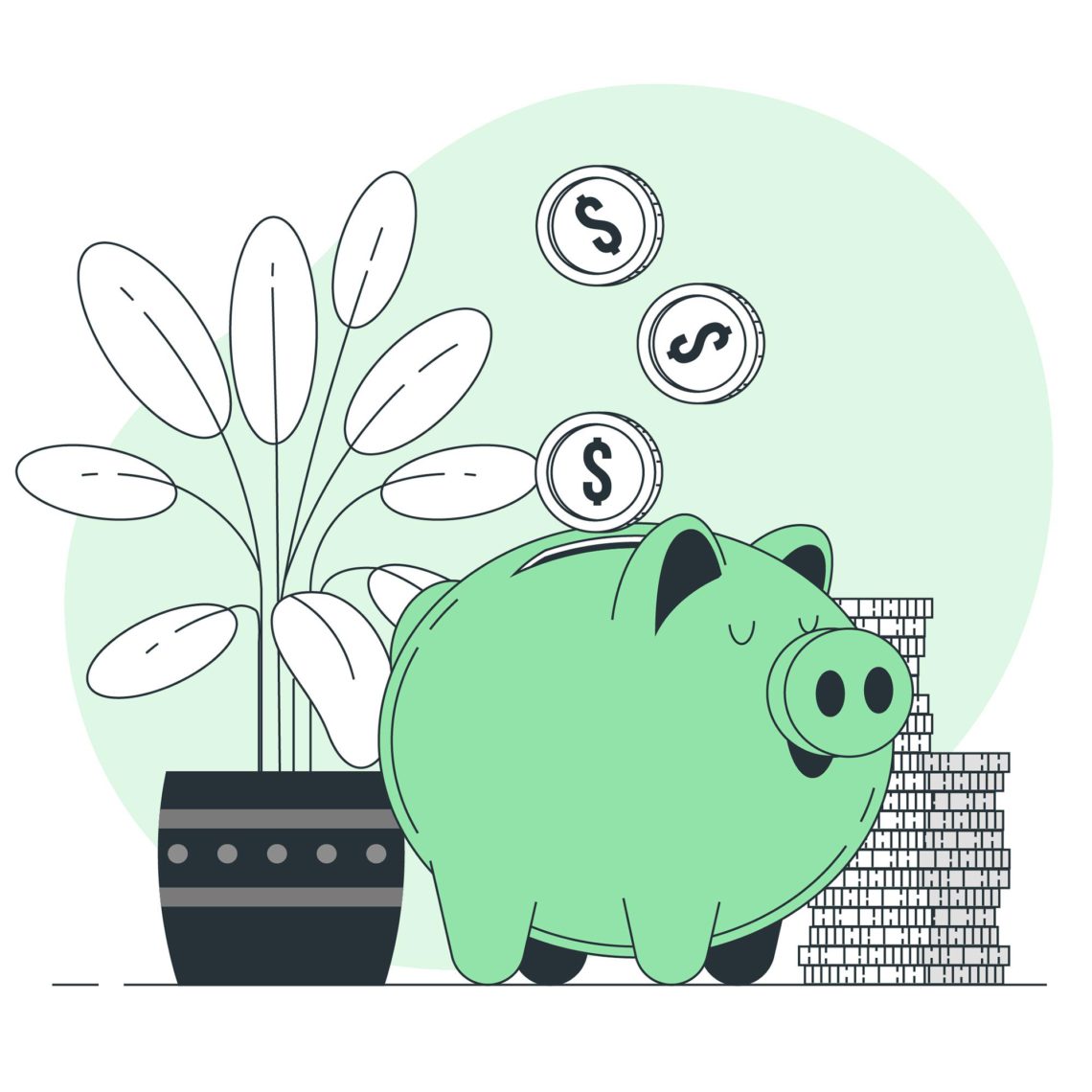
Finances and Frugality in a World Where Everything Costs a Freakin’ Fortune
Let’s talk about some F-words (no, not that F-word). Let’s discuss finances, fortune, and frugality.
I’m not a financial advisor, but I wanted to share some thoughts about money and some practices that have worked for my family.
Finances
Money. We need it to live, but everyone makes different amounts of it. And we all have different financial situations, systems, and priorities. Some of us budget every penny and others are comfortably wealthy or don’t care to keep track of spending.
Some people spend, and some people save. Some are good at both.
Then there’s debt, and credit scores, and debt-to-income ratios. What’s good debt vs. bad debt? Do you need a degree in finance or economics to manage a household?
Creating a household budget
Making a household budget is one way to keep track of finances. I use an Excel spreadsheet template that I’ve been using since Jonathan and I got married. It has categories for projected expenses and income and places for actual expenses and income. It helps me keep track of upcoming expenses and track what I’ve already paid (or has been debited from our checking account).
Of course, I also go old school with a pen and paper checkbook register, even though I rarely write checks with most bills being paid online.
I use a credit card for our monthly expenses and then pay it in full each month trying to keep it below a certain dollar amount that I’ve budgeted for those expenses like groceries, gas, and other miscellaneous things.
Then we have donations, installment loans like the car and mortgage, and some financed things like my daughter’s orthodontic treatment, any medical bills, and credit cards we might have used for interest-free financing like our Best Buy or Lowe’s card for a home appliance. For example, we’re trying to finish paying for our new stove and oven (a replacement for a broken 12-year-old unit) before we replace our 13-year-old washing machine that sounds like a freight train during the spin cycle and leaks water sporadically from the front door.
Budgeting for expenses or saving money
Part of my household budgeting plan is saving for upcoming expenses. Our car insurance and pest control contracts are due every 3 months, so each month, I set aside 1/3 of the payment. It works for me.
I also plan for months when yearly expenses are due like the car registration renewals.
If you’re just getting started on making a household budget, I’d suggest tracking your expenses for a month first. See where your money goes, especially if you find yourself having more month than money toward the end. The goal is always to spend less than what you make.
Debt
Paying off debt is also important. If you’re trying to pay off a credit card, try to pay more than the minimum payment. When the minimum payment drops as your balance does, stick with your higher payment to get rid of the debt (eventually). If you can only pay $50 a month which is the minimum at the beginning of the debt payoff cycle, don’t drop your payment to $35 as the balance drops.
Some debt is unavoidable, like a mortgage payment or a car loan. Shop around for the best interest rates. The “good” debt is usually loans for things that will have value when the loan is finished. “Bad” debt would be charging $2000 you can’t afford on your Old Navy credit card at an astronomical interest rate.
Student loans can be the only way for some people to go to college, but don’t take out more than you need and always read the fine print. Interest can be awful. And working part-time while attending college is a good way to pay for some of the expenses. Don’t be afraid to get your basics at a community college and then transfer for a bachelor’s degree.
And while I’m on a soapbox, the expense of college isn’t necessary for everybody. It just isn’t. I don’t mean that everyone doesn’t deserve a college education if they want one and it will benefit their lives—I mean that not all jobs require a college degree. Many trade schools with on-the-job training take a lot less time and money to get started. We need beauticians, electricians, mechanics, and plumbers.
Use credit strategically
If you use store cards to get discounts, great! Just don’t carry a balance with interest rates likely around 30%. It’s always best to pay off a credit card or have a set plan for paying off a large purchase. Interest charges add up, add to the balance, and make it seem like you’ll never get out of debt. And you won’t without changing spending habits.
If you want to use a card with good rewards, make sure to pay it in full every month if possible. If it’s not possible, look into ways to reduce spending.
For special financing deals, don’t go by the minimum payments provided. Do your own math to divide the total by the number of months to get your payment to pay it off ahead of accrued interest charges. What’s that? Accrued interest is the interest charges that start from the moment your purchase hits the card. If you don’t pay back the balance in full, you’ll be charged all the interest, which can sometimes be hundreds of dollars. Be careful.
Fortune (when everything seems to cost one)
The prices of a lot of things have gone up significantly lately. I notice it most when buying groceries. An extra dollar here or 50 cents there adds up fast. I can easily spend over $300 at the grocery store and feel like I didn’t buy much food.
In January 1999 the year I graduated high school, the average gas price was 94 cents a gallon. Now, since that’s an average price, there were places where the price was lower. I remember paying about 89 cents a gallon at some point during my senior year when $10 would almost fill the tank of my 1988 Chevrolet S-10 truck.
The Federal minimum wage at the beginning of 1999 was $5.15 an hour.
I’ve paid over $4 for gas within the last several years. Right now, in January 2024, gas is around $2.65 a gallon in Arkansas. I drive a 2017 Ford Fusion Energi Hybrid, and I’m fortunate to have a battery helping me out with gas mileage that averages around 75 MPG.
The Federal minimum wage in 2024 is $7.25 an hour. That’s not much of a raise over 25 years.
Housing prices and mortgage interest rates have also increased. There is a new subdivision near me selling nice homes in the 2,000 SF range for over $300,000. In 2008, right before the recession hit, Jonathan and I bought our first home for $117,000. It was a new build just under 1300 SF. We sold it at a slight loss (around $1,000 less than what we needed to break even) when we upgraded to our forever home in 2012 because we needed to get out from under two mortgages.
Times are just hard right now with inflation, talks of recession, unemployment after the pandemic, and salaries not meeting the demand. All we can do is do our best.
Frugality
Being frugal doesn’t mean being cheap; it means spending wisely and saving for the future.
Clothing and household items
Example: If you’re living paycheck-to-paycheck, spending $200 on sneakers for a kid who’s still growing doesn’t make as much sense as getting a $25-$50 pair that will likely last until the kid outgrows them. Or better yet, find a slightly used pair that is still like new at a consignment store or online marketplace.
However, for an adult who wears the same shoes every day and isn’t growing, spending more on a quality pair that will last years makes sense.
Buying basic needs and wants at a discount doesn’t make you cheap; it makes you smart and frugal.
Do you know how many items I’ve bought for my family at thrift stores that were still brand new with store tags or barely worn? So many I’ve lost count. My favorite jeans have always come to me secondhand. I stick with brands I like that I know will last.
I’ve bought tons of picture frames, books, and toys (most can be washed or sanitized) for my family secondhand or on sale.
And the clearance racks at retailers are my best friends. I recently bought my teenage son a new winter coat for only $15. The old coat he’d worn for a while was barely zipping on him since his recent growth spurt. I was thrilled with the purchase. All of his sleep t-shirts have been from the tag sales at Goodwill for $1.75 each.
Entertainment
Look for free things to do if your budget is tight. Instead of going to a restaurant, pack a picnic to eat at a park. Visit your local library to check out books and movies. They might also have free classes and programs depending on your area.
Look for free or discounted performances at community events, nearby colleges, or local schools.
Alternate streaming services. If money’s tight, consider only activating one streaming service at a time and pausing other subscriptions. Watch Netflix one month, Disney Plus the next, and so on until you make your way back around.
Food
While we can’t control the price of groceries, we can be strategic about what we spend and avoid wasting food.
I started meal planning last year, and it’s helped me reduce mindless shopping at the grocery store. I plan out the week’s meals in advance, utilizing leftovers as part of the plan when applicable. We have a weekly (sometimes twice a week) “Fend for yourself” night where my son might eat a protein bar and chips (it’s what he likes), my husband might make an omelet, my daughter might eat high-protein yogurt or mac and cheese, and I may just eat a bowl of cereal. It works for us.
Now, I try to only buy what we need for the week or the next two weeks if possible. It’s working so far. I buy things on sale if possible and utilize rebate apps.
Read more about ways I’ve saved money for my family.
Housing
My husband and I tried to be frugal when shopping for a larger home back in 2012. We’d just had our second (and last) baby, and it felt like our starter home was bursting at the seams. We wanted space to spread out, at least 3 bathrooms, a guest room, and space for Jonathan and me to have offices.
Our wishes came true when we stumbled upon a home that had most recently been a rent house. The 2800 SF home had been vacant for about a year, and it showed. The inside had a lot of outdated fixtures, stained flooring, and cosmetic damage.
It needed a new roof, new windows, new siding, and a fence for our dog. It also had a two-car carport, a deck, a front porch, 5 bedrooms, 4 bathrooms, a living room, a laundry room, a home office/den, a pantry, and tons of storage space.
We paid less than the house was worth, and since then, we’ve fixed it up. Some things had to be done right away and financed, like the outside features of the roof, windows, and siding. We put a huge amount on my Lowe’s card that took us 4 years to pay off, which included new appliances to replace broken ones, supplies to fix the flooring, paint the walls, update the fixtures, and generally make the house livable.
Some things were spit-shined until we could afford better. I painted the damaged cabinets and countertops, and we made them work for over 10 years until we had the money for a kitchen renovation. We lived with our scuffed-up bathrooms until we could make some updates (although we immediately replaced all 4 toilets when we first bought the house).
When mortgage rates dropped during the pandemic, we refinanced our house and converted to a 15-year mortgage. Our monthly payment went up a bit, but now we’ll be finished paying for our home in 2035 (or sooner) instead of 2043, saving thousands of dollars in interest. We don’t have any plans to move, and our house is worth twice what we owe on it.
Share your money-saving tips
Do you have any amazing money-saving tips you’d like to share? If so, please post them in the comments. I’d love to hear from you while I write my 6th novel on a shoestring budget!
Thank you for reading,
Brandi Easterling Collins
Image by storyset on Freepik





4 Comments
Joan Collins
Dean and I have always tried to live within our means. We paid our bills first, got groceries and gas. What was left was what we saved and entertained ourself on. Brandi you are great at budgeting. I’m so glad Jonathan has you. It takes a lot to run a household on a budget, you are great at it!
caniscareyou
Thank you, Joan!
William V
Such a great read! Insightful and actionable tips are great for those starting off or already “in the game” of life. I share your perspective on many things including being frugal. Why spend money to impress people you don’t even know? Thanks for sharing!
caniscareyou
Thanks for reading, William!